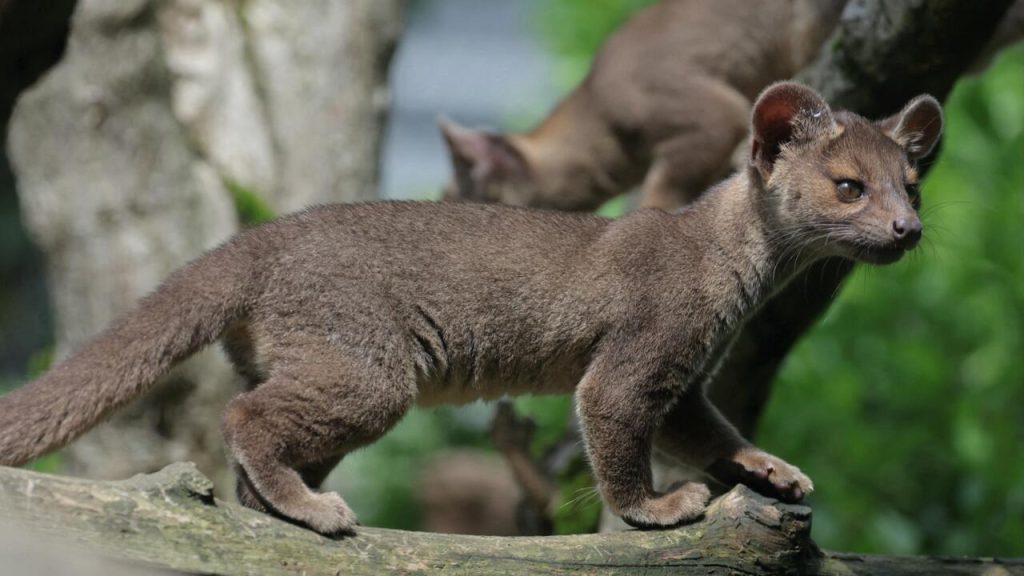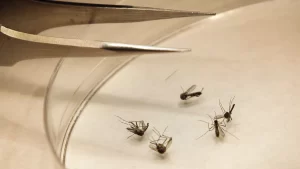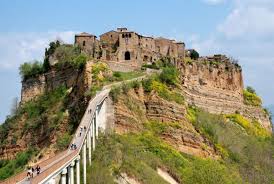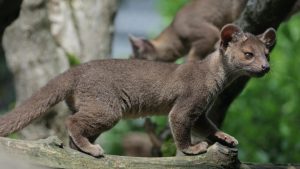France: Rare fossa cubs born in Paris zoo as wild numbers shrink in Madagascar

Paris: Three fossa cubs have been born at a Paris zoo – a rare event for one of Madagascar’s most elusive and endangered mammals. The births offer a small but important boost to conservation efforts for a species that few people have ever seen, and which is disappearing fast in the wild.
The baby fossas were first shown to the public this month at the Paris Zoological Park in Vincennes. Many visitors will have never heard of the species, which looks a little like a small wild cat but is more closely related to mongooses.
“It looks like a mini tree-dwelling puma, with a tail that’s about the same length as its body – maybe even a bit longer,” said zoo veterinarian Alexis Lécu.
Even in Madagascar, the fossa is hard to spot. Its forest habitat is shrinking every year due to farming and logging. Scientists believe that only around 3,000 fossas remain in the wild.
“Our visitors are often discovering this species for the first time. Even when you go to Madagascar, you see more lemurs than fossas,” Lécu said.
Fossas are difficult to study. “They only comes from one island and are not a species that’s spread out over a continent. Their whole system of hunting and lifestyle is based on hiding,” Lécu explained.
The species plays a key role in Madagascar’s ecosystems, but is classed as vulnerable as human activity puts it at risk.
The cubs, born in May, are among just 10 fossas born in zoos around the world this year. Their arrival in Paris is seen as a success for global breeding efforts.
Staff at the zoo closely monitor the fossas’ behaviour, rest and reproduction, sharing their findings with partners in Madagascar.
They are also working with local conservationists to protect the species in the wild. That includes helping people who depend on the island’s forests for farming, firewood and food.
“The aim is to help local populations live – to find ways of making a living that work, while continuing to protect species like lemurs, fossas and reptiles,” Lécu said.
The three cubs will eventually be sent to other zoos around the world as part of a breeding programme to help maintain a healthy global population.
But for now, there is no plan to reintroduce them into the wild.
Zoos like Vincennes are one of the few safe spaces left for fossas – and a reminder of what could be lost if Madagascar’s forests continue to disappear.





